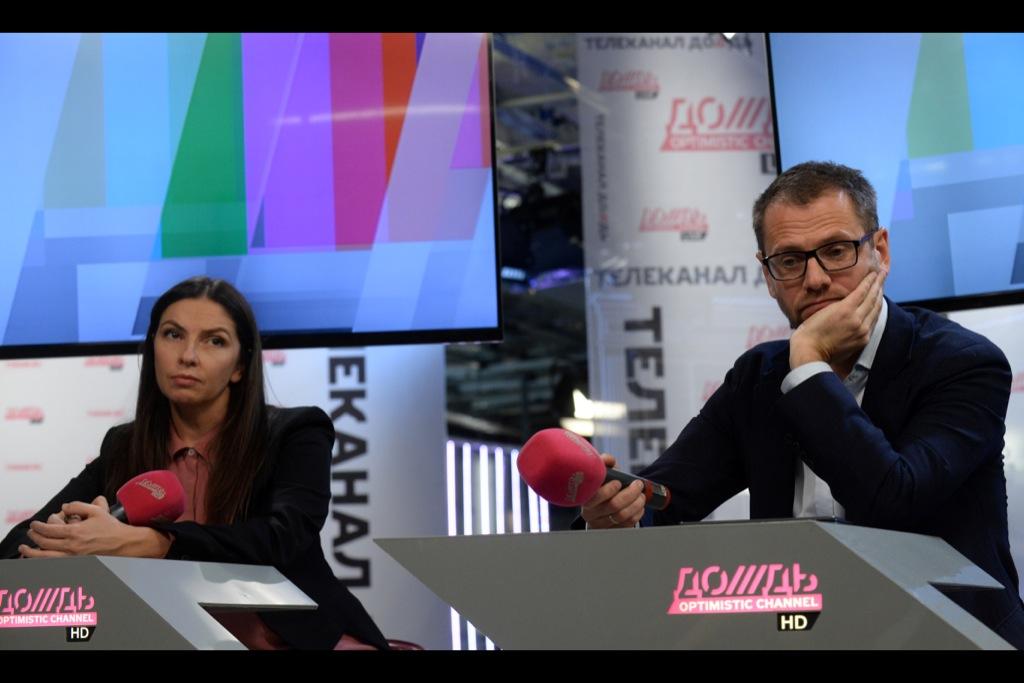A poll about WWII may force one of Russia’s last independent channels to close
Co-owners of cable channel Dozhd (TV Rain), Natalya Sindeyeva (L) and Alexander Vinokurov (R) attend a press conference at the channel office in Moscow, on February 4, 2014.
It’s rare for a poll question — and not the results of a poll — to make the news. But that’s what happened in Russia. An alternative Russian television channel known for its critical stance against the Kremlin might be forced to shutter its doors over a controversial poll it ran on its website last month.
“Our independence irritated them,” said the station’s general director Natalya Sindeyeva in an obvious reference to the government, according to Agence-France Presse. “I will fight until the end so that the independent channel can continue its work.”
The Moscow-based television station Dozhd asked whether Russia should have surrendered to the siege of Leningrad by the Nazis in World War II, in which approximately one million people lost their lives. Following a swift and strong backlash to the poll on social media, several television companies began severing ties with Dozhd. The poll was published on Jan. 27, which marked the 70th anniversary of the Siege of Leningrad.
According to an article in The Economist, the poll was “merely a convenient pretext for those in the Kremlin who long wished the channel ill.”
The BBC reported that Dozhd broadcast views of Alexei Navalny, an outspoken anti-corruption activist and blogger, who was imprisoned for about two weeks last year. Navalny is a leading opposition figure in Russia.
Regardless of the political undercurrents, the economic pressures could force the station to close.
Sindeyeva told The Economist she is worried advertisers will follow in the footsteps of the television groups that pulled the plug on Dozhd and leave the station’s future in peril.
Let’s face it: Russia isn’t known for press freedom. In its 2013 ranking of press freedom around the world, Reporters Without Borders placed Russia in the 128th position. The list included 179 countries, and those with extensive media freedom such as Finland, Netherlands and Norway took the top spots.
Russia was dropped from its 142nd position in the previous year.
According to a summary posted on its website, Reporters Without Borders attributed the decline in press freedom to Russian President Vladimir Putin’s return to presidency, noting that the suppression of press freedom “has been stepped up in response to an unprecedented wave of opposition protests.”
The story you just read is accessible and free to all because thousands of listeners and readers contribute to our nonprofit newsroom. We go deep to bring you the human-centered international reporting that you know you can trust. To do this work and to do it well, we rely on the support of our listeners. If you appreciated our coverage this year, if there was a story that made you pause or a song that moved you, would you consider making a gift to sustain our work through 2024 and beyond?
